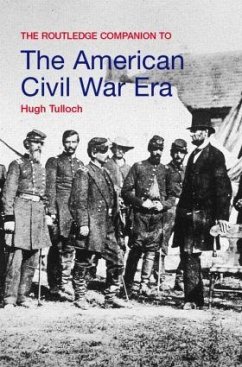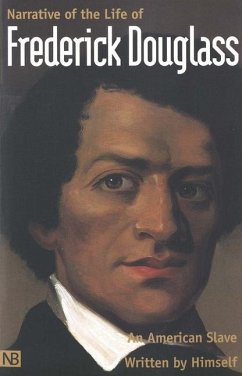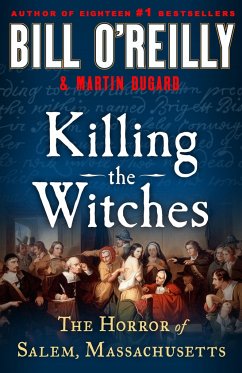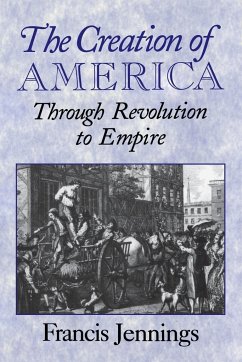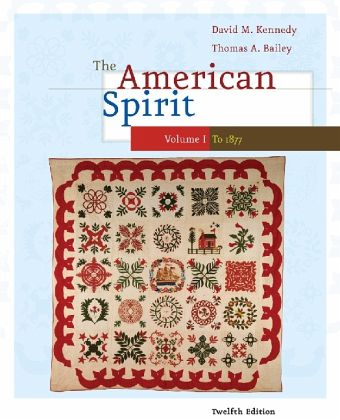
The American Spirit
United States History as Seen by Contemporaries. To 1877
Herausgeber: Bailey, Thomas A.; Kennedy, David M.
Versandkostenfrei!
Liefertermin unbestimmt




This detailed primary source reader focuses on political, diplomatic, and social history, presenting documents that include travel literature, religious sermons, newspaper articles, court testimony, and diary entries. An ideal companion for THE AMERICAN PAGEANT, this book can be used with any U.S. history survey text.
Thomas A. Bailey (1903-1983) taught history at his alma mater, Stanford University, for nearly forty years. Long regarded as one of the nation's premier historians of American diplomacy, he was honored by his colleagues in 1968 with election to the presidencies of both the Organization of American Historians and the Society for Historians of American Foreign Relations. He was the author, editor, or co-editor of some twenty-books, but the work in which he took the most pride was The American Pageant through which, he liked to say, he had taught American history to several million students.
David M. Kennedy is Donald J. McLachlan Professor of History Emeritus and founding Director of the Bill Lane Center for the American West at Stanford University. He also serves as General Editor of the OXFORD HISTORY OF THE UNITED STATES series. His volume in the series, FREEDOM FROM FEAR: THE AMERICAN PEOPLE IN DEPRESSION AND WAR, 1929-1945, won the Pulitzer Prize for History, the Francis Parkman Prize, the Ambassador's Prize and the California Gold Medal for Literature. He is also the author of OVER HERE: THE FIRST WORLD WAR AND AMERICAN SOCIETY, which was a Pulitzer Prize finalist, and BIRTH CONTROL IN AMERICA: THE CAREER OF MARGARET SANGER, which won the Bancroft and John Gilmary Shea Prizes. He is also editor of THE MODERN AMERICAN MILITARY, and co-editor of WORLD WAR II AND THE WEST IT WROUGHT. He lives in Stanford, California.
David M. Kennedy is Donald J. McLachlan Professor of History Emeritus and founding Director of the Bill Lane Center for the American West at Stanford University. He also serves as General Editor of the OXFORD HISTORY OF THE UNITED STATES series. His volume in the series, FREEDOM FROM FEAR: THE AMERICAN PEOPLE IN DEPRESSION AND WAR, 1929-1945, won the Pulitzer Prize for History, the Francis Parkman Prize, the Ambassador's Prize and the California Gold Medal for Literature. He is also the author of OVER HERE: THE FIRST WORLD WAR AND AMERICAN SOCIETY, which was a Pulitzer Prize finalist, and BIRTH CONTROL IN AMERICA: THE CAREER OF MARGARET SANGER, which won the Bancroft and John Gilmary Shea Prizes. He is also editor of THE MODERN AMERICAN MILITARY, and co-editor of WORLD WAR II AND THE WEST IT WROUGHT. He lives in Stanford, California.
Produktdetails
- Verlag: Cengage Learning EMEA / Wadsworth
- 12th ed.
- Seitenzahl: 576
- Erscheinungstermin: August 2009
- Englisch
- Abmessung: 236mm
- Gewicht: 958g
- ISBN-13: 9780495800019
- ISBN-10: 0495800015
- Artikelnr.: 26093187
Herstellerkennzeichnung
Die Herstellerinformationen sind derzeit nicht verfügbar.
Für dieses Produkt wurde noch keine Bewertung abgegeben. Wir würden uns sehr freuen, wenn du die erste Bewertung schreibst!
Eine Bewertung schreiben
Eine Bewertung schreiben
Andere Kunden interessierten sich für




